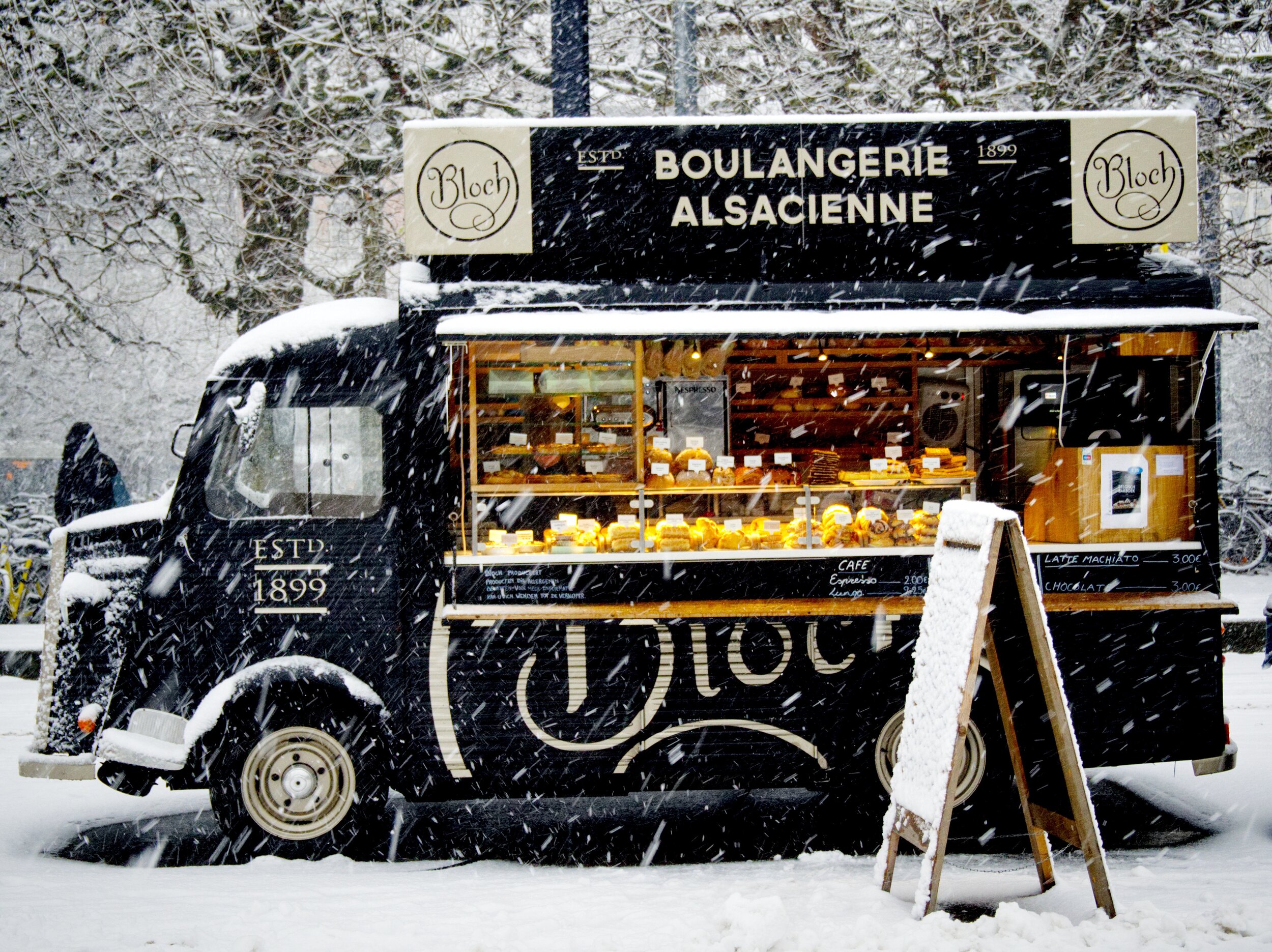Cold Weather Catering Logistics
/As the temperatures drop, the winter months bring a whole host of logistical considerations that can present obstacles for caterers. Nobody wants to be served a less-than-hot dinner or a lukewarm beverage, so it’s essential to prepare for the cold weather to ensure client satisfaction.
We asked some of our catering experts who are no stranger to cold winter and a bit of snow.
Plan well in advance
Planning is the first step to overcoming most obstacles and catering in winter weather is no exception. Get your team prepped early on so that they can enter the wintry months with confidence.
“We address weather conditions going into the holiday season,” shares Anthony Labatos of Denver-based Footers Catering. “We have a ‘winter driving seminar’ for anyone who will be driving trucks with reminders about safely driving large box trucks in icy and snowy conditions.”
Likewise, planning is also an important step in more immediate cases — including that of inclement weather during an event week. Keeping an eye on the forecast can prepare you to make alternate arrangements as needed.
“Use of a weather app is paramount,” stresses Meryl Snow of Philly-based Feastivities Events. “In doing so, you may be able to beat the storm by arriving at the location earlier. Carpooling your staff can also make transportation safer and more efficient.”
Prioritize food temperatures
Cold food isn’t appetizing in the winter, but you may find yourself battling the thermometer. Fortunately, there are plenty of catering solutions to keep food insulated and hot until the moment they are served to guests.
“Just like the summer months, the temperatures will be working against you,” says Adam Gooch of Pittsburgh-based Common Plea Catering. “Keeping hot food hot will be harder to manage and maintain.”
Gooch continues: “Coffee and sauces will lose temperature very quickly, so you need to plan ahead. Teach and train your staff on charging Cambro and/or hot boxes to make sure you are keeping food at the right temperature. You also need a backup plan, like a pot and burner to rewarm and heat things back up.”
Be respectful
Snow, slush, ice, and road salt is messy at best, but it can also be quite damaging to certain surfaces. Consider the venue as you navigate event days during inclement weather and do what you can to show them respect.
“We try to be mindful of weather when catering in people’s homes,” says Lambatos. “Asking our team to bring an extra pair of shoes so they don’t track snow into the house is a small thing we can do to ensure we are respectful of the places we are catering.”
Likewise, be cautious of rolling in carts or dragging crates in that have sat on the ground. Try to brush them off before taking inside or bringing a towel or tarp to set them on inside.
Consider the legal aspects
In many places in the country, winter events carry an inevitable amount of risk due to possible weather complications. Protect your business from losing out from any unavoidable factors. You don’t want to miss out on a check because the roads were shut down.
“You need to look at your contracts and make sure that you have a weather clause area to ensure you are covered in case of a big snowstorm that prevents you from doing the event,” reminds Gooch. “If this happens, work with the client as they might want to move the event, which could make it easier for you and your team as well.”
In addition, you also want to protect your clients as well. Insurance can go a long way for cancellations and rescheduled events based on weather conditions.
“Offer weather insurance to your clients,” encourages Snow. “Even if you and your client are ready to go despite the weather, there’s a good chance that their guest count will drop significantly. At that point, you might as well just reschedule. Who doesn’t want a well-attended event?”
Despite the challenges of cold temperatures and inclement weather conditions, winter events can be extremely rewarding and magical when produced with care. Prioritize safety and client satisfaction and you can’t go wrong.



